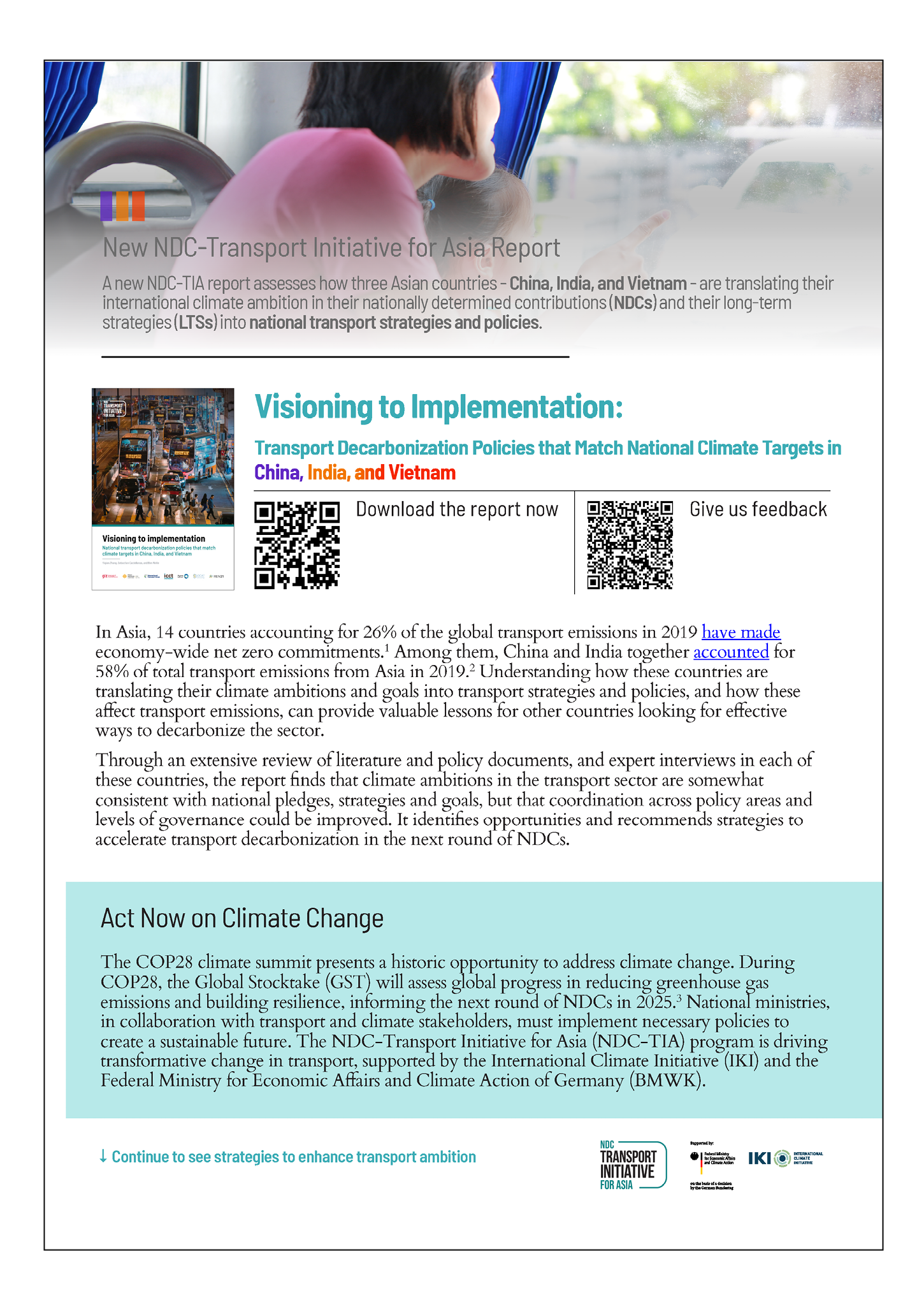Visioning to Implementation: Transport Decarbonization Policies that Match National Climate Targets in China, India, and Vietnam
Report - Visioning to Implementation
A new NDC-Transport Initiative for Asia report assesses how three Asian countries - China, India, and Vietnam - are translating their international climate ambition in their nationally determined contributions (NDCs) and their long-term strategies (LTSs) into national transport strategies and policies.
Through an extensive review of literature and policy documents, and stakeholder expert interviews in each of these countries, the report finds that climate ambitions in the transport sector are somewhat consistent with national pledges, strategies and goals, but that coordination across policy areas and levels of governance could be improved. It identifies opportunities and recommends strategies to accelerate transport decarbonization in the next round of NDCs.
This report assesses how three Asian countries—China, India, and Vietnam—are translating their international climate ambition in the nationally determined contributions (NDCs) into national climate change–related transport strategies and policies.
It analyzes how each country’s governance structure and policy planning, and development may support or hinder transport decarbonization.
It synthesizes information from a review of the academic literature, policy documents, and stakeholder interviews to evaluate the consistency of policy strategies and instruments and the coherence of coordination across policy areas and governance levels in each country.
It finds that climate ambitions in the transport sector are somewhat consistent with national strategies and goals but coordination across policy areas and levels of governance could be improved.
Report Takeaways: 7 Strategies
The report recommends 7 strategies to accelerate transport decarbonization in the next round of NDCs:
Align long-term vision with short-term actions in the transport sector.
Ensure transport decarbonization is not managed in isolation from other sectors and related policies.
Leverage multistakeholder platforms to enable change.
Focus on an equitable and just transition.
Follow a systematic approach for transport decarbonization.
Craft an integrated, comprehensive policy mix for e-mobility with myriad instruments.
Support sustainable financing availability and move away from fossil fuels.
Download specific takeaways from the report
Check out the launch event!
Authors:
Yiqian Zhang, Manager, WRI Climate and Electric Mobility
Sebastian Castellanos, WRI Senior Research Associate
Ben Welle, WRI Director of Integrated Transport & Innovation
With support from:
Agora, ICCT, ITF, GIZ, REN21, SLOCAT.





